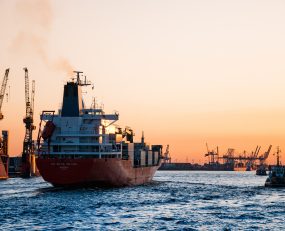
In regard to its environmental impacts, the shipping industry has gone partly unnoticed in mainstream media. It is not accountable in the same way that political leaders are held accountable to their green policies. However, environmental regulations are beginning to have an impact on the industry. The shipping industry accounts for 3% of global CO2 emissions and 10% of transport emissions. Sea freight is one of the least harmful ways of moving cargo, but freight demand is on the rise and a new report from environmental non-profit CDP, A Sea Change, has stated that shipping companies are failing to push for critical technologies that are needed to reduce their carbon footprints, such as emission-free ships. If nothing improves, the Organization for Economic Co-operation and Development has estimated that emissions will rise by between 50% and 250% by 2050.
Despite shippers recognising that they will need to utilise more environmentally friendly solutions, the market so far has not driven the transition to zero carbon. Governmental and industry policy interventions and incentive schemes are required. New regulations will come into effect on January 1, 2020, which will lower the allowed sulphur exhaust of ships from the current maximum of 3.5% to 0.5% in most of the open seas, and 0.1% in the so-called emission control areas along the US and EU.
Companies will not need to invest in a new fleet as the existing fleets will be compatible with the new fuel. However, a joint study carried out by LR and A.P. Moller – Maersk argued that the transition to zero-carbon fuels will result in an increase in operational costs because new fuels are projected to be significantly more expensive than existing fossil fuel solutions. Additionally, depending on the ship type and route, the increase in freight costs could be up to 25%. Considering the lack of previous regulations in place it is unsurprising that few companies have previously used more environmentally friendly fuels.
However, consumers are becoming increasingly aware of the environmental impact of their goods. As highlighted by the increased media spotlight, including the recent Extinction Rebellion protests, it is unlikely that this trend will change. Consumers are looking to use more environmentally friendly, carbon-neutral brands which will encourage brands to look for shippers who offer these services. However, until now there has been no obligation or substantial advantage to encourage shippers to use more environmentally friendly fuels. Some companies, such as Maersk and Kuehne + Nagel are already addressing their CO2 footprints either through carbon offsetting or investing in technology to improve the efficiency of the fleets.
As new regulations and a greener customer demand trend begins to take hold, the logistics industry will be forced to adapt. Fashion brands, including Nike, Gucci and H&M are already actively seeking out companies which offer carbon-neutral or carbon-zero shipping. Logistics providers will need to quickly adapt if they wish to win any contracts with more environmentally friendly companies in the future.
Source: Transport Intelligence, October 29, 2019
Author: Beth Poole